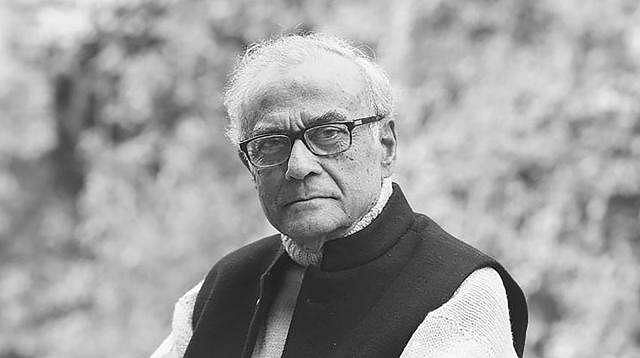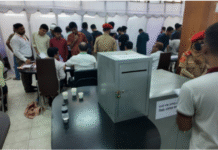
Bilateral relations between India and Nepal have grown complicated amidst the clashes between India and China at the Galwan frontier of East Ladakh. Nepal has taken a tough stance regarding its boundary with India and has redrawn its map. Some politicians are fanning anti-India sentiments there. Prothom Alo’s Delhi correspondent Soumya Bandopadhyay talked to India’s former ambassador to Nepal and Bangladesh, Deb Mukherjee, about this and many other issues
Relations between India and Nepal are fast souring, particularly since Nepal drew up a constitution. Replying to Prothom Alo’s queries in this regard, the former Indian high commissioner Deb Mukherjee said relations between India and Nepal have been deteriorating over the last few weeks. The commitment made to the Madhesi people was completely overlooked during the composition of Nepal’s constitution in 2015. As a result, the Madhesis enforced a blockade. Bilateral relations were at the lowest ebb then.
Mukherjee told Prothom Alo that at the time he said that the attitude of the Nepali elites towards Madhesis was comparable to the attitude of the West Pakistani people towards the East Pakistanis in 1971. After that incident, relations were restored somewhat. Recently bilateral relations soured again as Nepal has redrawn its map, including Lipulekh, Kalapani and Limpiyadhura in its territory.
Bangladesh has to build ties with both China and India in its overall national interests and it is Bangladesh alone that can determine those interests
Those three areas were included as part of British India when Nepal lost a battle with East India Company in 1816. “I researched the matter in detail and I don’t think Nepal’s demand has any justification. Yes, India should have responded quickly to Nepal’s invitation for discussions on Kalapani. Considering the two countries’ historical ties, this deterioration in relations is certainly unwarranted.”
Deb Mukherjee said he did not see any evidence of China’s influence behind the latest steps Nepal has taken.
Prothom Alo next asked the former ambassador about Nepal’s gradual leaning towards China and what should India’s role be in this context.
Deb Mukherjee said he did not see any evidence of China’s influence behind the latest steps Nepal has taken. Everyone knows about the difference of opinion that exists among the leaders of the ruling party of Nepal. He said that differences are coming to the surface as well. India should take its next steps considering the vibes of Nepal’s internal politics, he added.
Deb Mukherjee, however, said Nepal has the right to take decisions about its relations, including the scope and magnitude of its dependency on China. But, he warned, that the cost of excessive dependence on China was high, an pointed out that many countries were now realising how much their dependence on China had cost them in economic, political and military terms.
Around 40 years ago, I was in charge of Bangladesh affairs in the foreign ministry of India. At that time, I thought SAARC, proposed by Bangladesh, was a grand idea. No neighbouring country would feel threatened because of the largeness of India but the help would be full-fledged. Sadly, SAARC never bloomed to its full potential.
Responding to Prothom Alo’s question on China’s claim on areas adjacent to Arunachal near the Bhutan border, Deb Mukherjee said China’s claim on areas adjacent to East Bhutan was nothing new. Claiming land near East Bhutan is a part of Xi Jinping’s aggressive expansionism in South China Sea or East Ladakh, he said. International quarters are gradually becoming displeased this. Several South-East Asian countries have gone to the United Nations alleging violation of their rights as per international law.
Coming to Bangladesh-India relations, despite strong bilateral ties between the two countries, there were always some anti-Indian sentiment visible in this neighbouring country .
The former Indian ambassador to Bangladesh said he thinks Bangladesh should build relations with China in its own interests. It must build relations with both China and India considering its overall national interests and only Bangladesh should determine those interests.
Regarding Prothom Alo’s question on Bangladesh’s reactions to India’s Citizenship Amendment Act, Deb Mukherjee said the matter is sensitive, no doubt. The passage of this law in 2019 may have indirectly influenced public opinion in Bangladesh. Despite India’s highest authority’s assurances, CAA created different reactions in Bangladesh and influenced its people. Many cases are underway at India’s Supreme Court. Cases have been filed saying this is anti-constitution and sought its repeal. This is an internal matter and is under trial. He declined to talk more on the issue.
Prothom Alo asked Deb Mukherjee how would he evaluate Narendra Modi as many opposition leaders in India think that though Modi gained acceptance in the global arena, India’s influence on the neighbouring countries has declined during his time.
The former ambassador said head of the state or government of any country gains importance based on the global conception of the country. But it is not that there are no exceptions. For example, Nelson Mandela. India will be evaluated based on its current performance in economic indicators and internal development. Inviting neighbouring state and government heads in the oath taking ceremonies in 2014 and 2019, Modi has proved how much importance he gives to the neighbours. He said India’s relations with neighbouring countries except Pakistan and currently Nepal, remains unchanged.
So how should India’s ideal neighbours policy be? Deb Mukherjee said many critics think despite having goodwill, India did not cultivate bilateral relation with neighbours with due stamina. Because of excessive focus on Pakistan, interests of other neighbouring countries may have been overlooked. “Around 40 years ago, I was in charge of Bangladesh affairs in the external affairs ministry of India. At that time, I thought the SAARC concept proposed by Bangladesh, was a grand idea. I thought no neighbouring country would feel threatened by the vastness of India and that that there would be all-out cooperation. Sadly, SAARC never flourished to its full potential.”
He said the one basic truth about neighbours was that we all run by one eco-system. If anything is dangerous to one, it will have a negative impact on the other. He said it was essential to adopt the attitude of ‘each one for each other’. We should address each other’s necessities and concerns without harming each other’s sovereignty, he said, adding that India, being the largest country in South Asia, had the primary responsibility in this regard.
* The interview, published in print edition of Prothom Alo, has been rewritten in report form in English by Shameem Reza









